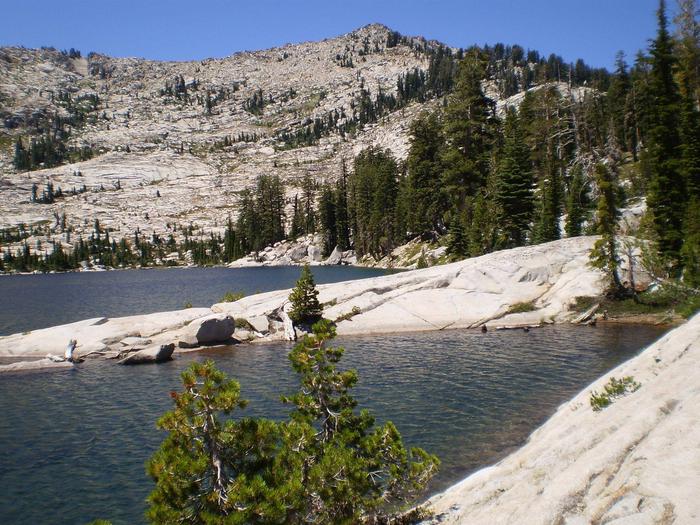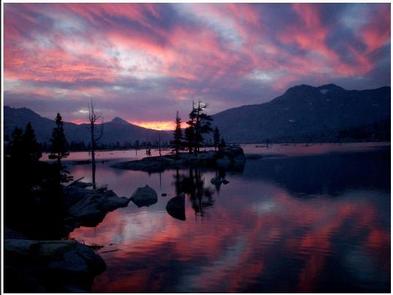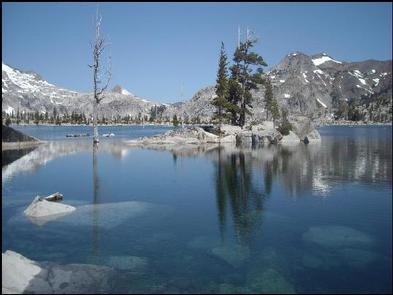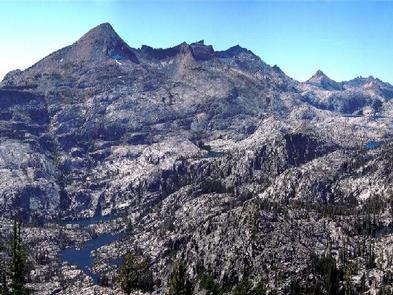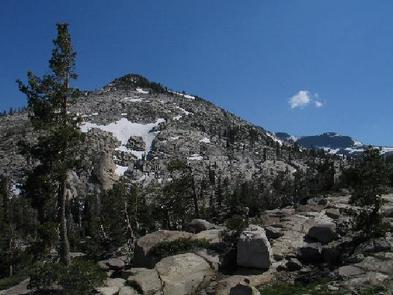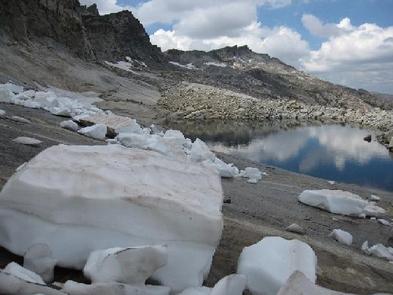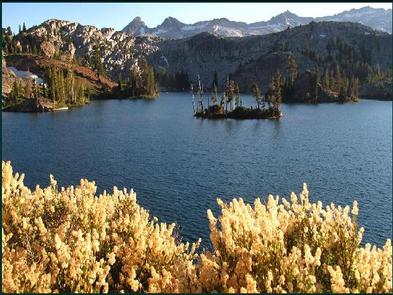Loon Lake Trailhead will be closed due to construction and inaccessible to vehicle and foot traffic for the entire 2025 season. Please access the northern Desolation Wilderness zones through another trailhead.
Desolation Wilderness Permit
- Part of
Desolation Wilderness is open for overnight and day use. Visitors should use caution when travelling through areas burned in the Caldor Fire and be aware of dead and fire-weakened trees and other hazards present in the recently burned landscape.
Use this Desolation trip planning guide (PDF) to make the most of your visit and learn more about the permitting system, trail conditions and Desolation wilderness stewardship opportunities.
Visitors must obtain a Wilderness permit for overnight camping as well as day visits, year-round. A quota system is in place for the 45 overnight destination zones from the Friday before Memorial Day through September 30th each year. The system disperses visitors throughout the area, providing an opportunity for solitude and reflection. Overnight permits are available for reservation six months in advance. A recreation fee is assessed during the permitting process. Day use permits are free of charge.
- Campfires are not allowed within the area. Camp stoves are permissible.
- Maximum group size is 12 people who will be together at any given time during the trip.
- BEAR CANISTER REQUIRED. Overnight Wilderness Visitors must store all food and scented items in a hard-sided bear-resistant canister. Up to $5000 fine for non-compliance as per 36 CFR 261.58 (cc).
- A signed permit must be carried at all times by the group leader. A digital or paper permit reservation confirmation is not a valid permit.
- When selecting a campsite choose a durable surfaces at least 100 feet from water and trails.
- Heavy snow may start as early as October and may persist through July.
Desolation Wilderness is accessed through 13 trailheads: Loon Lake, Van Vleck, Rockbound, Twin Lakes, Lyons Creek, Pyramid Creek, Ralston Peak, Echo Lake, Glen Alpine, Mt. Tallac, Bayview, Eagle Lake and Meeks Bay. During the winter months, most of the trailheads are covered by snow and are not accessible by vehicle. Contact a local U.S. Forest Service office for current conditions.
Long recognized for its many lakes surrounded by glacial carved granite basins, Desolation Valley Primitive Area was established in 1931 and became a congressionally designated wilderness area in 1969. Desolation Wilderness is located west of Lake Tahoe and north of Highway 50 in California. It straddles the crest of the Sierra Nevada range, encompassing 63,690 acres, and has elevations ranging from 6,500 feet to nearly 10,000 feet. Pyramid Peak as the highest point, topping out at 9,987 feet. Horsetail Falls, which tumbles in stages for nearly 500 feet, is just one of the area's many waterfalls.
The Pacific Crest National Scenic Trail traverses 17 miles through Desolation Wilderness, from Echo Lakes to the south to Richardson Lake just past the northern boundary. The Tahoe Rim Trail also travels through Desolation.
While summertime draws the most visitors, during the winter, the area is a popular playground for experienced backcountry skiers and snowshoers.
Permit & Season Information
Overnight Permits:
- Permits are required all year round and allow an individual or group (of up to 12) travelling & camping together to stay in this Wilderness.
- Permits are limited in quantity from Friday of Memorial Day weekend to the end of September.
- The quota is based on 45 Destination Zones. You must stay your first night in the Zone you select for your permit. After your first night, you may change locations for subsequent nights of your visit using the same permit, as long as you exit by the last date booked for your trip.
- Permits can be reserved up to six months in advance of your day of entry.
- Outside of the limited quota season, permits can be booked and printed on the day of entry.
- Within the limited quota season, your permit can be printed starting seven days in advance and up to the day of entry.
- You must have a printed copy of your permit with you at all times.
Day Use Permit:
Obtain a free permit from a local Forest Service office , or at trailheads in the summer.
How Does the Quota Work for this Permit?
The quota season is from the Friday before Memorial Day to September 30 each year.
The quota is based on 45 Destination Zones and applies to the number of individuals selecting that zone for their first night’s stay. This system protects popular destinations from overcrowding and provides opportunities for solitude and reflection. A destination-based quota was selected (as opposed to a trailhead-based quota) for Desolation Wilderness because it is a relatively small wilderness area and many zones can be reached from a single trailhead.
An overnight permit is required year-round in Desolation Wilderness. During the off-quota season there is no limit to the number of overnight users in each zone (maximum group size still applies).
